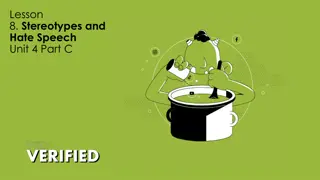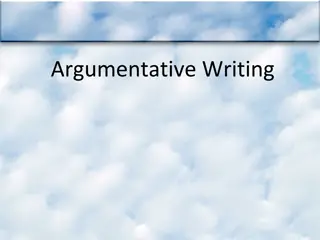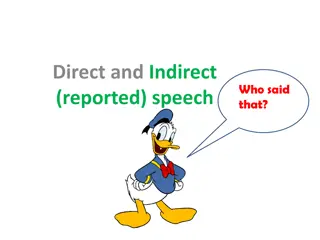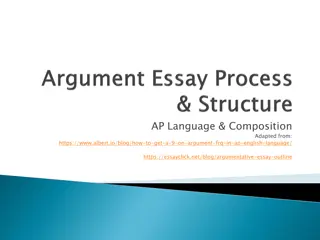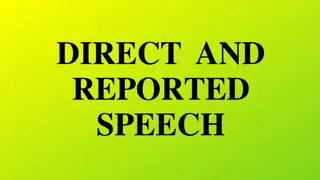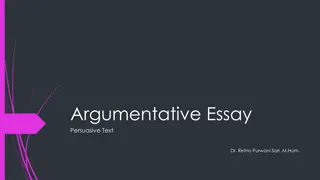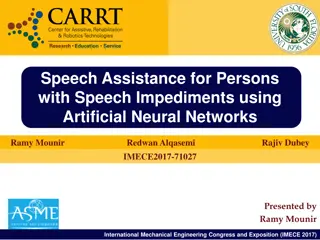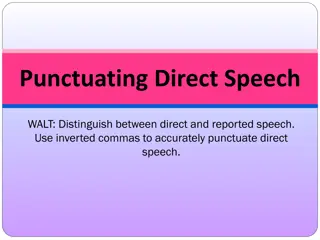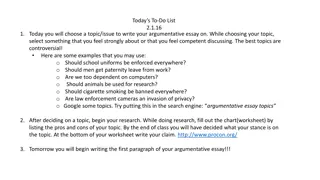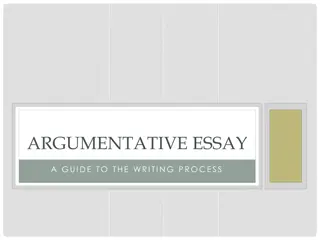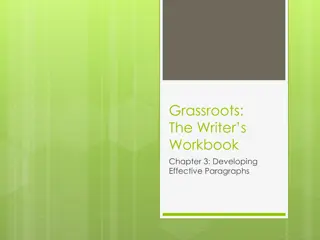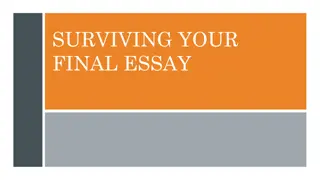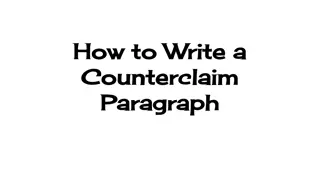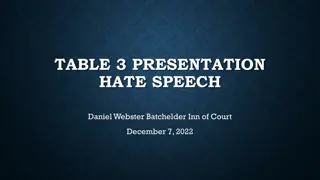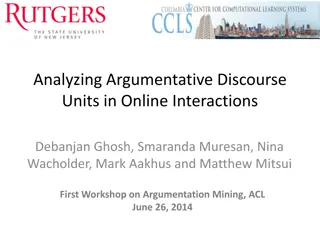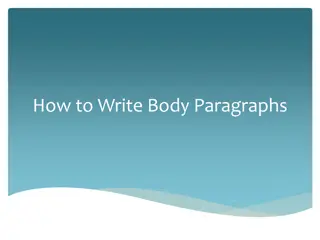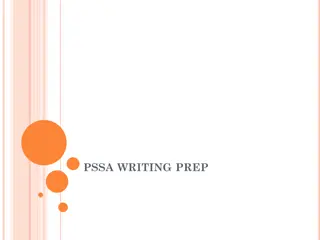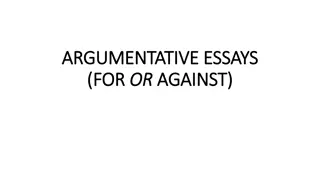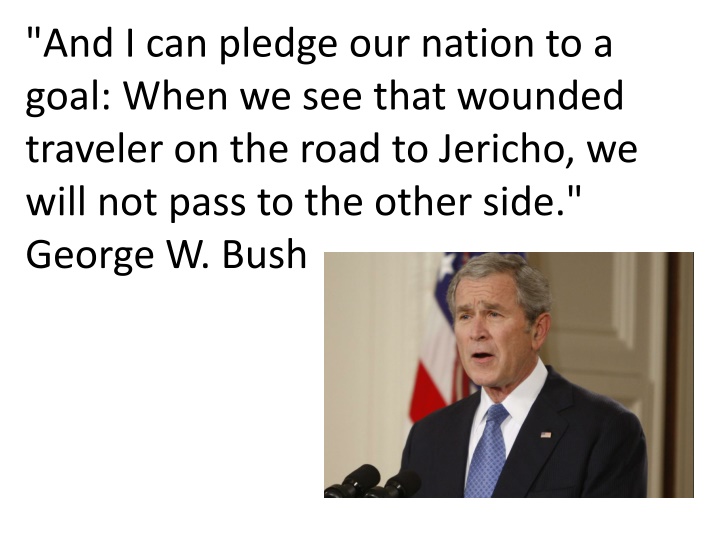
Allusion in Speeches and Its Significance Explained
Explore the concept of allusion in speeches through examples like George W. Bush and Abraham Lincoln, illustrating how historical and literary references add depth and meaning to communication. Understand how allusions can enhance the impact of a message and engage the audience effectively.
Download Presentation

Please find below an Image/Link to download the presentation.
The content on the website is provided AS IS for your information and personal use only. It may not be sold, licensed, or shared on other websites without obtaining consent from the author. If you encounter any issues during the download, it is possible that the publisher has removed the file from their server.
You are allowed to download the files provided on this website for personal or commercial use, subject to the condition that they are used lawfully. All files are the property of their respective owners.
The content on the website is provided AS IS for your information and personal use only. It may not be sold, licensed, or shared on other websites without obtaining consent from the author.
E N D
Presentation Transcript
"And I can pledge our nation to a goal: When we see that wounded traveler on the road to Jericho, we will not pass to the other side." George W. Bush
Allusion Allusion is a brief and indirect reference to a person, place, thing, or idea of historical, cultural, literary, or political significance. It does not describe in detail the person or thing to which it refers. It is just a passing comment and the writer expects the reader to possess enough knowledge to spot the allusion and grasp its importance in a text.
Examples of Allusion in Speeches In his second inaugural address, Lincoln used the phrase, "but let us judge not, that we be not judged." This is an allusion to the words of Jesus in Matthew 7:1, which in the King James Version reads, "Judge not, that ye be not judged." "And I can pledge our nation to a goal: When we see that wounded traveler on the road to Jericho, we will not pass to the other side." George Bush
Sample Introduction Imagine eating fast food every day for lunch. McDonalds? Wendy s? Burger King? The options are endless. Burgers, fries, milkshakes. Wouldn t anyone want this? To some students, it sounds like the perfect meal plan whatever you want, the cafeteria will fix it your way. More and more schools are serving fast food in middle and high schools. Some people believe offering fast food is the only way to get students to eat. Others have their doubts. Fast food shouldn t be allowed in school cafeterias because it leads to weight gain, high blood pressure, and overall sluggishness.
Sample Introduction Did you know that McDonald's feeds 68 million people per day? That's about 1 percent of the world's population. It seems like everyone loves fast food, especially young people. Recently, more and more schools are serving fast food in middle and high schools. Some people believe offering fast food is the only way to get students to eat. Others have their doubts. Fast food shouldn t be allowed in school cafeterias because it leads to weight gain, high blood pressure, and overall sluggishness.
Body Paragraphs and Topic Sentences Body paragraphs build upon the claims made in the introductory paragraph(s). Organize with the use of topic sentences that illustrate the main idea of each paragraph. 6
Types of Support Types of Support facts statistics expert opinions details direct quotations examples cause-and-effect situations predictions definitions reason, logic, and good sense
Firstly, it gives children a sense of accomplishment and success. Making music is something for them to be proud of, and it lets kids practice performing in front of an audience. As reported in the California Educator, It gives [students] self-confidence and a feeling of importance to have a skill someone appreciates. They are also learning how to accomplish something from beginning to end and actually come out with a product that they can be proud of (Smith). It is evident that music gives children an outlet for self-expression, and that helps develop their self-confidence.
Music not only makes children better students but also gives them something positive to do. For example, in a music program, children can be part of a band or choir instead of joining a gang. Parents can enjoy listening to their children s music instead of seeing them glued to a computer or TV screen. In band, students get to be part of a team. They can interact with old friends and make new friends through music. While learning and making music, children can also be exploring a potential career. According to a study by the National Board of Educators, students who participated in music were more well-rounded and possessed better social skills (Johnson).
Offering a Counterclaim Addressing the claims of the opposition is an important component in building a convincing argument. It demonstrates your credibility as a writer you have researched multiple sides of the argument and have come to an informed decision. It shows you have considered other points of view that other points of view are valid and reasonable. 10
Effective Counterclaims Consider your audience when you address the counterclaim. Showing that you understand some of your opposition s concerns can demonstrate respect for their opinions. Remain respectful yet firm. Using rude or harsh language can cause your audience to reject your position without carefully considering your claims. 11
Some opponents of school music classes believe that the benefits are not worth the money that will be spent. They claim that funds should be dedicated for academic subjects only, arguing that grade point averages need to be high in order for students to be accepted by colleges. While it is true that grades are an important part of college acceptance, evidence shows that students would be much smarter if they had some music experience. They would improve their classroom skills, like paying attention, following directions, and participating without interrupting. People develop all these skills when they learn music. Furthermore, musicians are better in math, and they get higher S.A.T. scores. For instance, a study by the College Entrance Examination Board reported, Students with 20 units of arts and music scored 128 points higher on the S.A.T. verbal and 118 points higher in math (Johnson). A Rockefeller Foundation study states that music majors have the highest rate of admittance to medical school (Lucas). Making music also lets children use their imaginations, unlike playing with video games and electronic stuffed animals. It provides students a chance to try out their own ideas, according to the California Educator (Smith). Music makes children well-rounded students.

![Prevention and Combating of Hate Crimes and Hate Speech Bill [B.9B.2018]](/thumb/60513/prevention-and-combating-of-hate-crimes-and-hate-speech-bill-b-9b-2018.jpg)
